Mariposa-nabi Primary Center serves 92 students in grades Kindergarten-2.
The student:teacher ratio of 18:1 is lower than the California state level of 21:1.
Minority enrollment is 99% of the student body (majority Hispanic), which is higher than the California state average of 80% (majority Hispanic).
Quick Stats (2025)
- Grades: Kindergarten-2
- Enrollment: 92 students
- Student:Teacher Ratio: 18:1
- Minority Enrollment: 99%
- Source: National Center for Education Statistics (NCES), CA Dept. of Education
School Overview
Mariposa-nabi Primary Center's student population of 92 students has declined by 41% over five school years.
The teacher population of 5 teachers has declined by 44% over five school years.
Grades Offered
Grades Kindergarten-2
Total Students
92 students
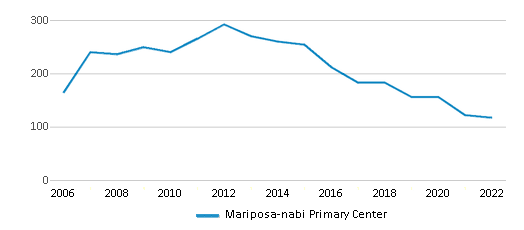
Gender %
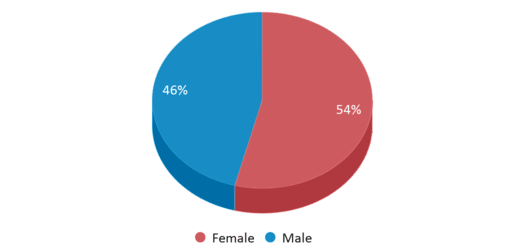
Total Classroom Teachers
5 teachers
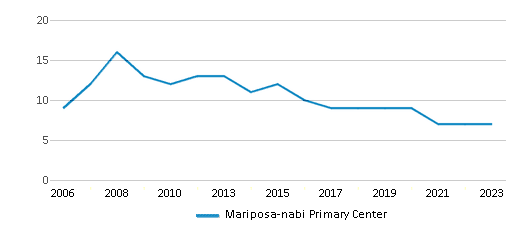
Students by Grade
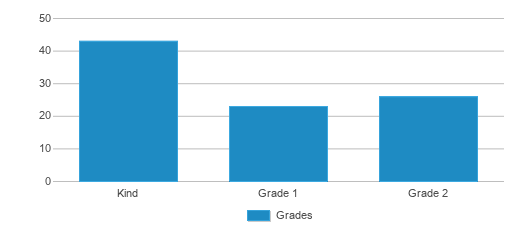
School Rankings
The diversity score of Mariposa-nabi Primary Center is 0.29, which is less than the diversity score at state average of 0.63. The school's diversity has stayed relatively flat over five school years.
Student : Teacher Ratio
18:1
21:1
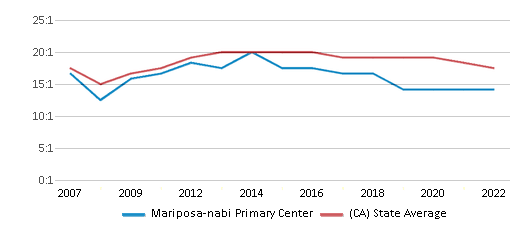
American Indian
n/a
1%
Asian
4%
12%
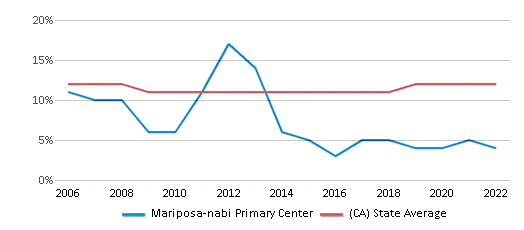
Hispanic
84%
56%
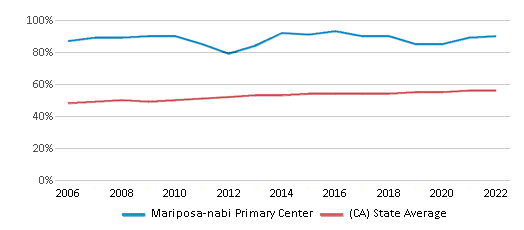
Black
2%
5%
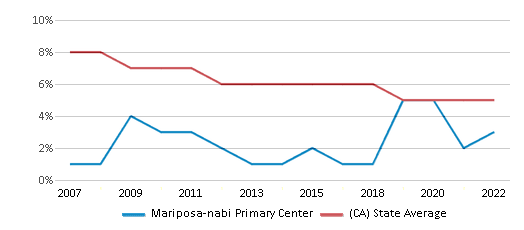
White
1%
20%
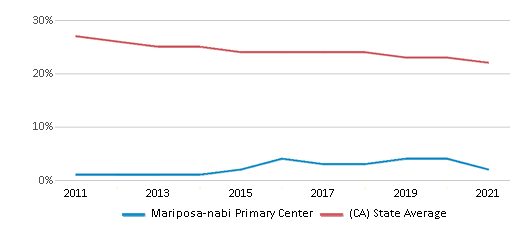
Hawaiian
n/a
n/a
Two or more races
9%
6%
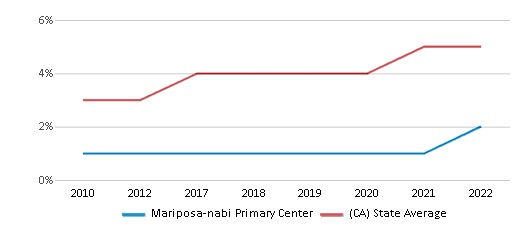
All Ethnic Groups
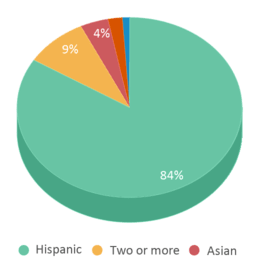
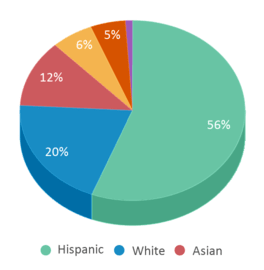
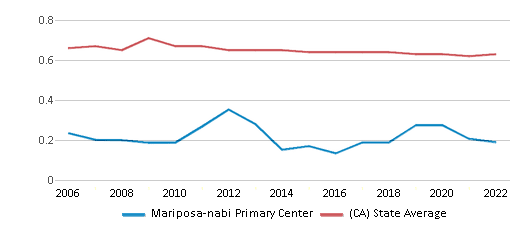
Eligible for Free Lunch
88%
54%
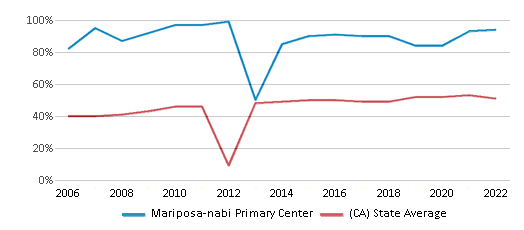
Eligible for Reduced Lunch
3%
8%
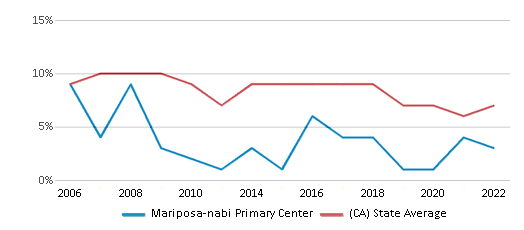
School Statewide Testing
School District Name
Source: National Center for Education Statistics (NCES), CA Dept. of Education
Profile last updated: 02/09/2025
Frequently Asked Questions
How many students attend Mariposa-nabi Primary Center?
92 students attend Mariposa-nabi Primary Center.
What is the racial composition of the student body?
84% of Mariposa-nabi Primary Center students are Hispanic, 9% of students are Two or more races, 4% of students are Asian, 2% of students are Black, and 1% of students are White.
What is the student:teacher ratio of Mariposa-nabi Primary Center?
Mariposa-nabi Primary Center has a student ration of 18:1, which is lower than the California state average of 21:1.
What grades does Mariposa-nabi Primary Center offer ?
Mariposa-nabi Primary Center offers enrollment in grades Kindergarten-2
What school district is Mariposa-nabi Primary Center part of?
Mariposa-nabi Primary Center is part of Los Angeles Unified School District.
In what neighborhood is Mariposa-nabi Primary Center located?
Mariposa-nabi Primary Center is located in the Koreatown neighborhood of Los Angeles, CA. There are 18 other public schools located in Koreatown.
School Reviews
Review Mariposa-nabi Primary Center. Reviews should be a few sentences in length. Please include any comments on:
- Quality of academic programs, teachers, and facilities
- Availability of music, art, sports and other extracurricular activities
Recent Articles

What Is A Charter School?
Explore the world of charter schools in this comprehensive guide. Learn about their history, how they operate, and the pros and cons of this educational innovation. Discover key facts about charter schools, including admission policies, demographics, and funding, as well as what to look for when considering a charter school for your child.

10 Reasons Why High School Sports Benefit Students
Discover the 10 compelling reasons why high school sports are beneficial for students. This comprehensive article explores how athletics enhance academic performance, foster personal growth, and develop crucial life skills. From improved fitness and time management to leadership development and community representation, learn why participating in high school sports can be a game-changer for students' overall success and well-being.

February 05, 2025
Understanding the U.S. Department of Education: Structure, Impact, and EvolutionWe explore how the Department of Education shapes American education, from its cabinet-level leadership to its impact on millions of students, written for general audiences seeking clarity on this vital institution.





